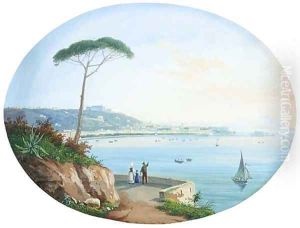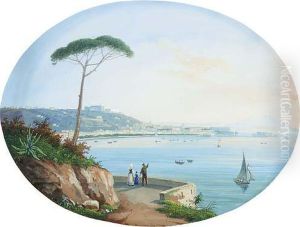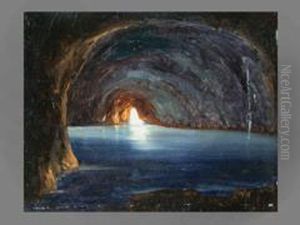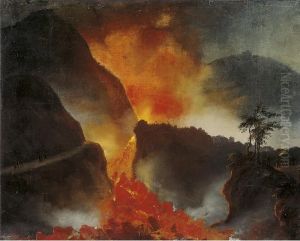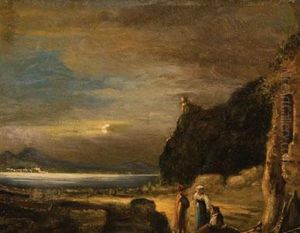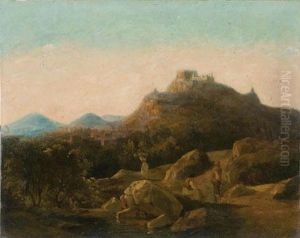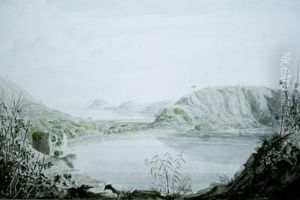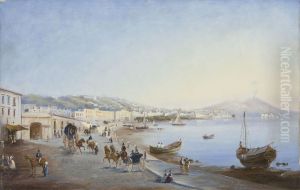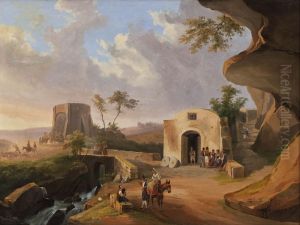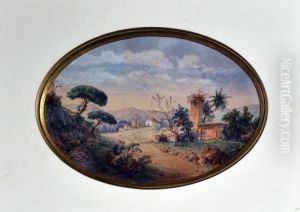Francesco Fergola Paintings
Francesco Fergola was an Italian painter, draftsman, and architect, born in 1799 in Naples, Italy. He was part of a family deeply involved in the arts; his father, Salvatore Fergola, was a notable architect and engineer, which undoubtedly influenced Francesco's artistic path from an early age. Fergola is best remembered for his landscapes and architectural paintings, capturing the picturesque and historical sites of Naples and its surroundings with a meticulous eye for detail and atmosphere.
During his lifetime, Fergola was deeply embedded in the Neapolitan art scene. He studied at the prestigious Accademia di Belle Arti di Napoli, where he honed his skills in drawing and painting under the guidance of renowned artists of the time. His education and natural talent enabled him to master various artistic mediums, though he is most celebrated for his works in oil painting and watercolor.
Fergola's artistic output was prolific, and his works were highly sought after, not only in Italy but also among European collectors. He had a particular affinity for capturing the ever-changing landscapes of his homeland, from the bustling streets of Naples to the serene vistas of the Italian countryside. His works often depicted historical events, local festivities, and natural disasters, such as the eruptions of Mount Vesuvius, providing invaluable visual documentation of 19th-century Italian life.
Beyond his landscapes, Fergola also made significant contributions as an architect and urban planner. He was involved in several projects aiming to modernize Naples, reflecting the city's growth and the changing tastes of its inhabitants. His architectural drawings and plans are considered important historical documents that offer insights into the urban development of Naples during his lifetime.
Fergola's dedication to his craft and his ability to capture the essence of Neapolitan life earned him numerous accolades and recognition from his contemporaries. Despite the acclaim, he remained deeply connected to his roots, drawing inspiration from the landscapes and people that surrounded him.
Francesco Fergola passed away in 1874, leaving behind a rich legacy of art that continues to be celebrated for its historical significance and beauty. His works are preserved in various museums and private collections, testament to his enduring influence on Italian art and culture.
